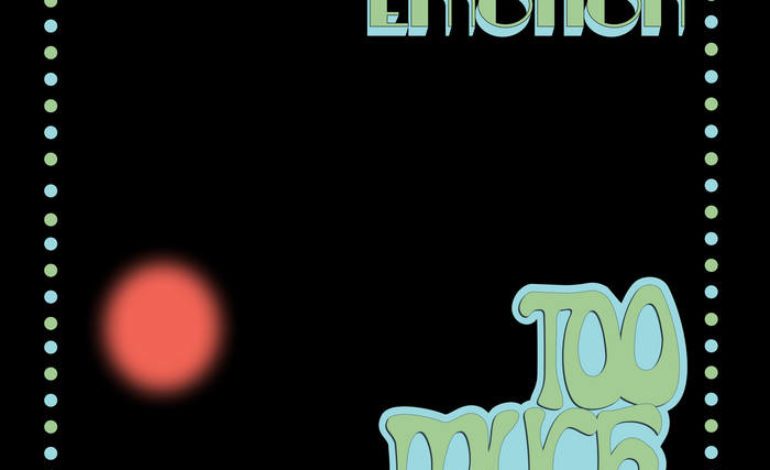

Muted boredom in the form of a dance record
Navigating a debut record can be difficult, both as an artist, and as a listener. For the artist, their vision can become clouded by the very idea of the “debut record,” the sort of statement off of which a true star can build a reputation, a fanbase and ultimately, a career. It’s an undeniably important moment that can make or break the rest of their life. As a listener, it’s just difficult because one generally doesn’t have as clear an idea of what to expect as they would for an artist that already has years of documented full-length releases behind them. Too Much, a duo composed of DC punk legend Ian Svenonius (Nation of Ulysses, The Make-Up, Escape-ism) and Rich Morel, now have this moment behind them. Club Motion is open for the world to consume, and while it doesn’t completely fail to become an accurate representation of what this artist can and will create, even the best moments don’t feel like enough. All it really has going for it is the lasting question of what could’ve been, and what will be.
Aside from the lovely grooves, satisfying guitar licks and endearingly/hilariously passionate vocal performance of “I Can’t Believe It,” the first half of the album is mostly just misfires. The title track is downright boring, “Lay It On The Line” can’t be saved from it’s uncomfortable instrumentation by a cool chorus and accompanying swell, and while the airy guitar over minimal additional production on “Not Tonight” is beautiful, it is the first of many tracks on Club Emotion to be brought down by odd vocal choices. For an album that clearly wants to capture that club sound, some of these tracks really do feel like they could force the reconsideration of one’s evening plans. It’s not the type of boring that makes one actually want to claw their eyes out, it’s a more muted boredom that just makes it a little bit easier to pay attention to quite literally anything else.
The second half of Club Emotion goes slightly better than the first. “We Showed Them” has some of the album’s coolest production. The synthetic electronics bounce with a Tron-like sheen, but are completely ruined by an utterly bizarre and genuinely frustrating vocal performance. Some of the best breakdowns and bridges are destroyed by the annoying “yeah, yeah, yeah” repetitions and the absurdly abrasive shrieks. “Diabolical” elects for a similar path, intriguing production that quickly conjures images of a packed club atmosphere weighed down by sub-par, albeit impressively adventurous vocals.
“Fact or Fiction” combines some lovely synths, Daft Punk-esque warbles and the pop sensibility of a duo like Hall and Oates into one beautifully wrapped, catchy and fun package. The album concludes with a track that acts as a much better representation of the whole. The utterly unpleasant vocal performance on “I Wanna Be a DJ” is likely to leave a sour taste in any listener’s mouth, regardless of however cool the instrumentation is in final minute of the song is.
Club Emotion is absolutely not the type of less-than-optimal project that destroys all interest in the artist. There’s absolutely good music here, or at the very minimum, good ideas, much of it is described here. There just isn’t enough to constitute a “good” debut. Artists have faltered on their debut album before. It is totally possible to for an artist’s career-defining moment to materialize years after that debut album first reaches listeners, and that moment will be amazing. While it gives some reason to hope for further artistic development in the future, Club Emotion is just not that moment.
